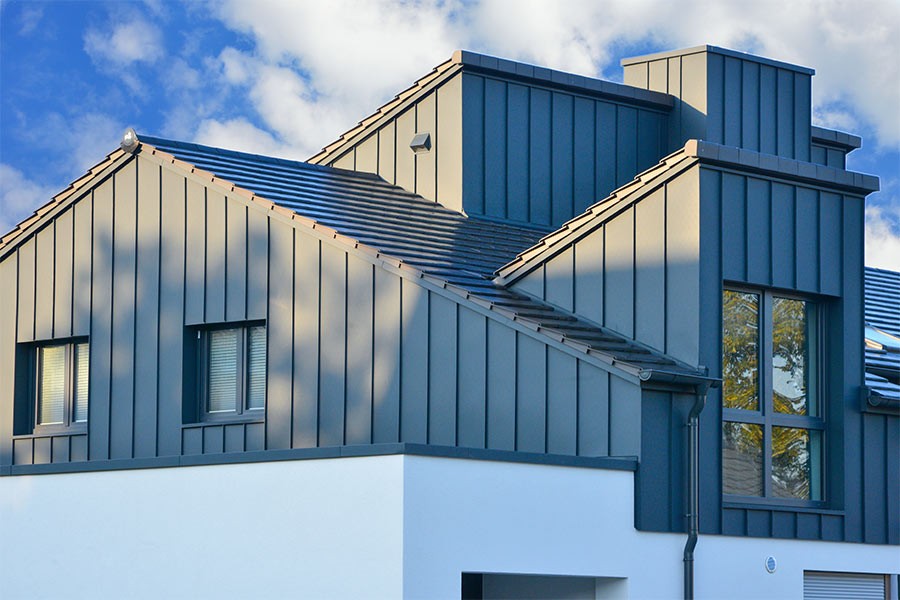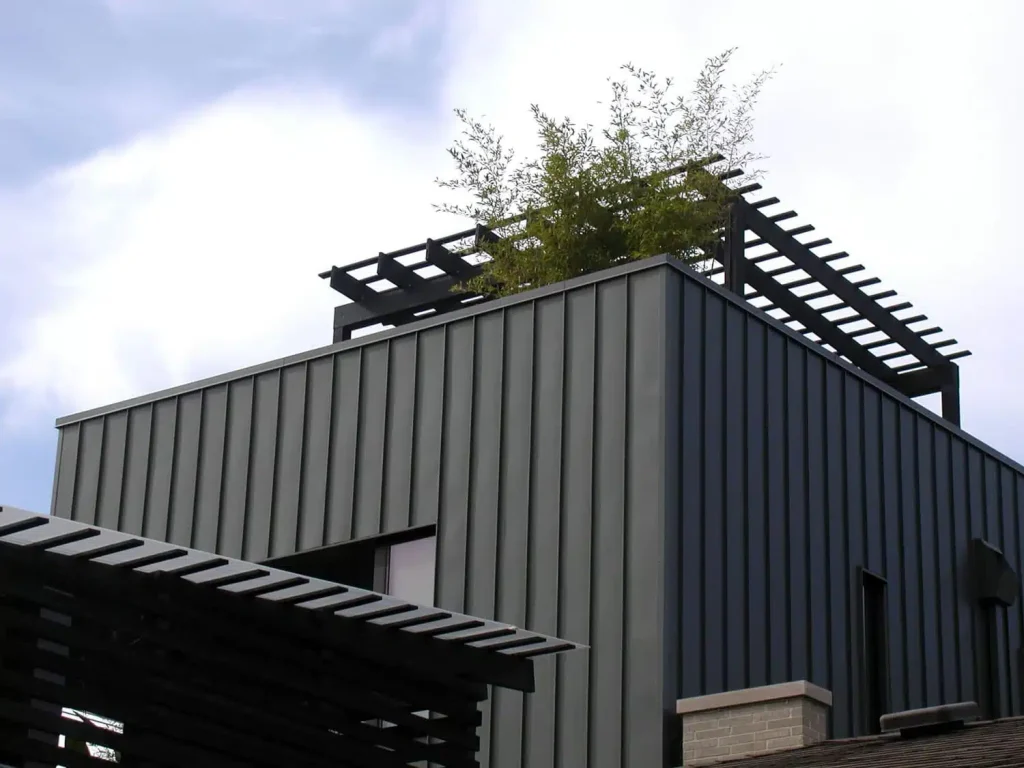Published on: July 18, 2024

The cost of metal siding for the average home is $14,000-$32,000 for steel and $12,000-$20,000 for aluminum. But many factors impact the cost of metal siding, including materials, labor, size of home, and more. Here’s a look at the main factors that will impact your total project cost.
Once you’ve decided that metal siding is the best material for your home, you need a good way of calculating the cost of metal siding to start saving for your project and getting a feel for what to expect once you start meeting with contractors.
Here’s a look at the factors that impact the cost of your siding project.
Metal siding is a broad category that encompasses a variety of material types. The two most common are aluminum and steel. But you can also get copper, tin or zinc siding. These are all significantly more expensive but they are options for material type.
The home size will dictate how many materials the contractor must use to cover the home. The larger your home, the more you’ll pay to have it sided.
Some homes include sections with stone or brick façade, complex multi-story designs, angles that are more challenging to side, etc. Your home design will impact the final price you pay for your siding project.
When your fastener panels are concealed, you’ll pay more for your siding project. Concealed panels are more waterproof and temperature resistant, which makes them a good choice for protecting a home. But they are more complex to install siding on. These are also known as standing seam panels.
When you choose your metal siding, you have options for how thick you want the panels to be. The most common gauge is 24 or 26. You don’t want a lighter gauge than 26 if you’re installing it on a home. But the smaller the number gauge, the more you’ll pay for it. The difference between 24- and 26-gauge siding can be 30-40 percent of the total material cost.
If you opt for insulated metal siding, you’ll add approximately $1-$2 in cost per square foot compared to non-insulated siding options. Trying to add insulation to standard siding panels will be costlier than buying insulated panels so it is better to just go with insulated siding now than to decide you want to add it later.
Residential metal siding can include a Galvalume finish to prevent scratches, rust and corrosion. This will cost more than metal siding with SMP paint finish. However, the Galvalume finish will provide a more vibrant appearance for longer. Generally, unpainted siding is reserved for commercial use.
Installing metal siding is more expensive than vinyl siding because it is so much heavier. You’ll pay approximately $3-$10 per square foot for installation. Homes with concealed fastener panels will be on the upper side of that estimate.
Your siding contractor must factor in the cost to remove your existing siding and dispose of it. Depending in the material that is currently on your home, you might have to pay more for its removal and disposal. Disposing of various materials will vary for your contractor based on local regulations.
Metal siding is one of the more expensive siding materials available. Here’s a look at the average siding costs for a 2,000-square-foot house. Just know that many factors impact the total cost of your siding project, which means your quotes might vary based on your home’s unique characteristics.

While the upfront cost is one factor, don’t forget to talk to your siding contractor about the average lifespan of your siding. This will help you price out its cost over the next few decades to decide the best value of the siding and not just its upfront expense.
Metal siding can last a long time. Homeowners get an average of 40-70 years from this siding. However, because it is prone to dents, it might not look the best throughout these many decades compared to similar materials, such as vinyl. If you’re looking for a material you can install and not have to worry about for many decades, this is a great option for you.
Spend some time reviewing the pros and cons metal siding can provide so you know what to expect from installing this siding type.
Whether metal siding is good material to install on your home will depend on many factors. You should discuss your project with a skilled siding contractor before deciding on a material for your project. This will help ensure you consider all angles of your siding project to combine longevity with cost factors and wear and tear on your home.
Metal siding does not absorb moisture or heat, which can make it less maintenance. You should clean it annually to keep it looking its best. When you compare metal siding to wood, it is a far easier siding to maintain. However, compared to vinyl, it is about the same to maintain.
When you need advice about whether to install metal siding on your home or building, meet with the professionals from 2FL Windows, Siding and Roofing. Various siding materials provide differing benefits, maintenance requirements and longevity. To find the best mix for your home based on your budget and ability to maintain the home, you should talk with an expert.
Schedule your free estimate now to meet with a member of our skilled team.
Further Reading:

Read the latest articles about siding.
